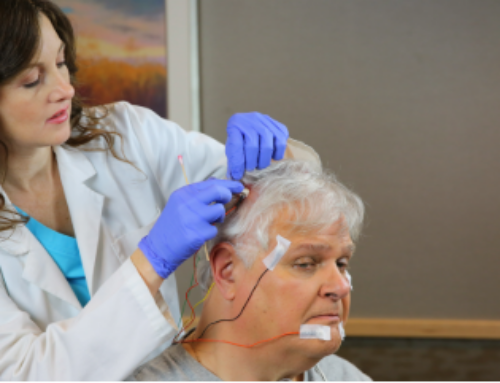In a study to be presented on February 15, at the Society for Maternal-Fetal Medicine’s annual meeting, The Pregnancy Meeting™, in San Francisco, researchers will report findings that women with obstructive sleep apnea (OSA) and cardiac symptoms have a 31 percent incidence of cardiac dysfunction. The use of echocardiograms should be considered in the clinical management of these women.
OSA is characterized by abnormal pauses in breathing or instances of abnormally low breathing, during sleep. These pauses can last from at least ten seconds to minutes, and may occur five to 30 times or more an hour; this can lead to cardiovascular disease. The objective of the trial was to measure the incidence of OSA among pregnant and reproductive women.
“We found a 31 percent incidence of abnormal echocardiograms among symptomatic women with obstructive sleep apnea,” said Laura K.P. Vricella, MD, fellow, Maternal-Fetal Medicine at MetroHealth Medical Center. “Further investigation is needed to understand the relationship between obstructive sleep apnea and cardiovascular disease and their impact on pregnant women.”
The cohort was made up of 1,265 women between the ages of 15-45 who met the Apnea-Hypopnea Index (AHI) criteria for OSA based on nocturnal polysomnogram testing. Data was gathered from 2005-2012 at a tertiary care center. Sleep lab data and individual transthoracic echocardiogram reports were reviewed.
The results for the 1,265 women were broken into three categories of AHI:
•665 (53%) mild
•305 (24%) moderate
•295 (23%) severe
Those with mild and severe AHI were similar in age, race and Body Mass Index.
Research revealed that women who all had cardiac symptoms had a 31 percent incidence of cardiac dysfunction. It was determined than an echocardiogram should be considered during the clinical management of these women.
February is American Heart Month. According to the Centers for Disease Control and Prevention (CDC), heart disease is the leading cause of death for both men and women, but heart disease is preventable and controllable.
Risk factors for heart disease include high blood pressure, high cholesterol, smoking, diabetes, being overweight or obese, poor diet, physical inactivity and excessive alcohol use.
One often overlooked risk factor for heart disease is obstructive sleep apnea. If you think you might have sleep apnea, it’s important for you to talk to your doctor or visit www.sleepeducation.com for a searchable directory of sleep centers.





